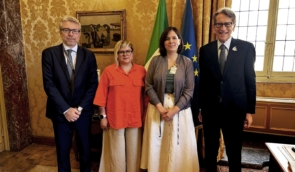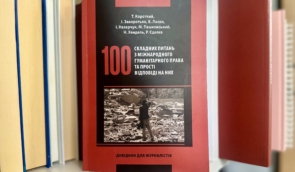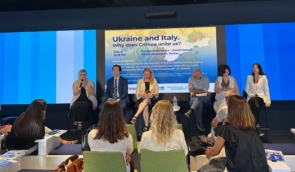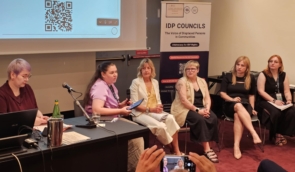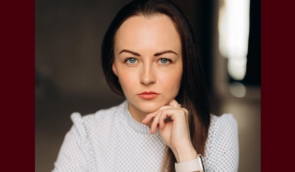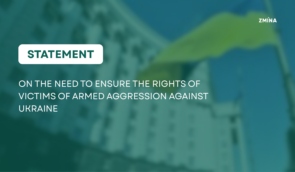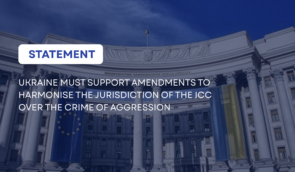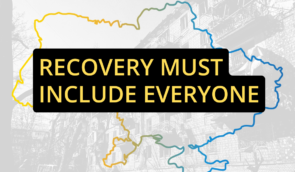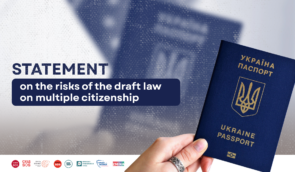Persecuted and detained: ZMINA shares stories of Crimean political prisoners at OSCE conference
Human Rights Centre ZMINA in partnership with CrimeaSOS and Front Line Defenders and with the support of the Mission of Ireland and Human Rights House Foundation held a side event “Persecuted and Detained: Stories of Crimean Political Prisoners” during the Warsaw Human Dimension Conference on October 6.
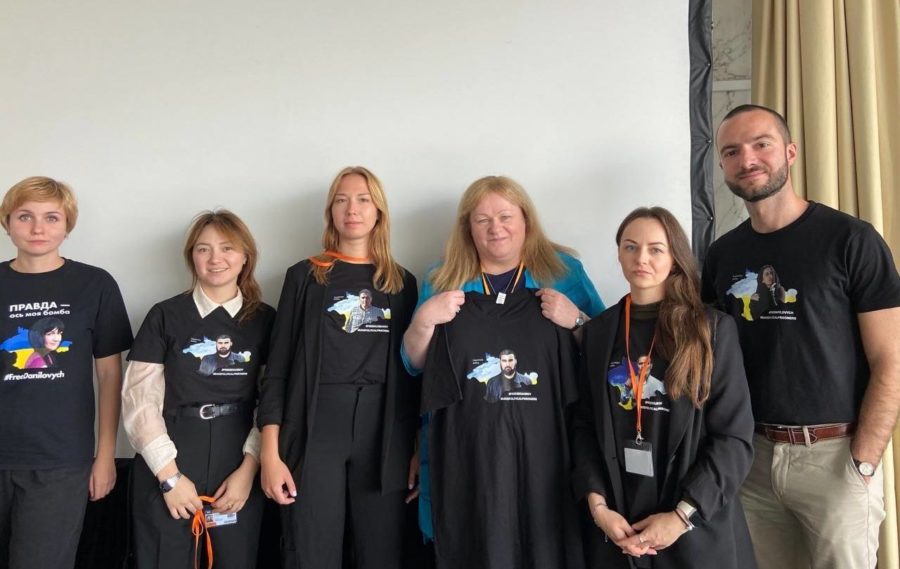 Photo: Event participants with the Ambassador of Ireland to the OSCE
Photo: Event participants with the Ambassador of Ireland to the OSCEZMINA project manager Viktoria Nesterenko, co-coordinator of CrimeaSOS Sabina Ilyasova, representative of Front Line Defenders Anastasia Moskvychova, representative of Human Rights Watch Yulia Gorbunova, brother of political prisoner Leniye Umerova, Aziz Umerov, and father of political prisoner Iryna Danylovych, Bronislav Danylovych, joined the discussion.
The participants told the international community about the persecution and violation of human rights of human rights defenders, media workers, activists of both Ukrainian and Crimean Tatar origin which have become massive in the territory of temporarily occupied Crimea. The population of the peninsula is subject to brutal repression: 186 Crimean political prisoners are currently known, who were not only illegally convicted but are also held in inhumane conditions.
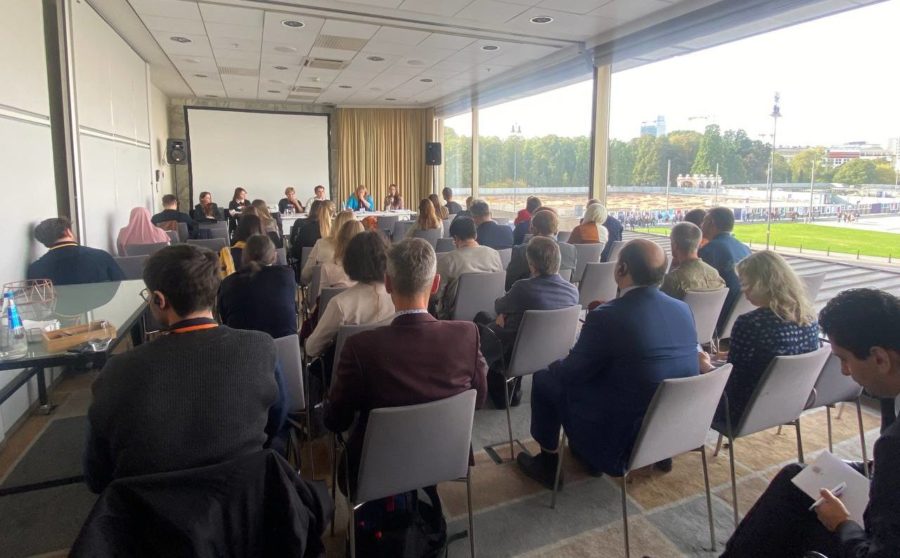
“At the beginning of this year, two Ukrainian political prisoners – Dzhemil Hafarov and Kostiantyn Shyring – died due to lack of medical care in Russian prisons. Now we know about 50 Crimean political prisoners who are also not provided with medical care in places of detention and their lives are in danger. This is a gross violation of human rights committed by the management of the pre-trial detention center and penal facilities and, in accordance with the Geneva Conventions, such actions may amount to torture, for which the officials of the occupation authorities of Crimea and the Russian Federation must be held to account,” said Viktoria Nesterenko, a representative of Human Rights Centre ZMINA.
ZMINA investigated cases of denial of medical care to political prisoners, collected information about officials involved in the failure to provide medical care, and drew up a sanction list. “Today, it is extremely important to talk about how Russia behaves with unjustly imprisoned citizens of Ukraine. Therefore, we call on representatives of the international community to impose sanctions, put pressure on the authorities of the Russian Federation and demand the release or exchange of our citizens,” Nesterenko added.
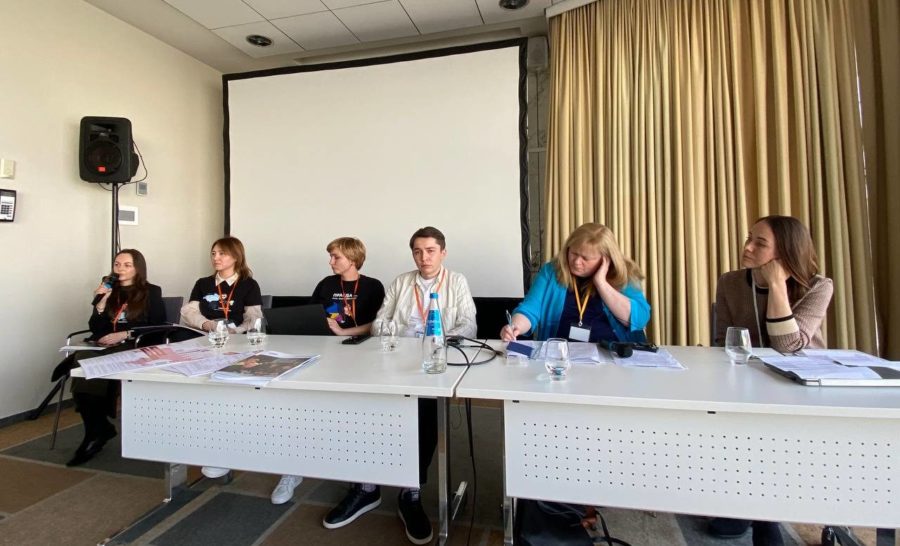
Bronislav Danylovych, the father of political prisoner Iryna Danylovych, told the story of his daughter’s illegal imprisonment and failure to provide her with medical care behind bars: “Iryna’s illness has been in the advanced stage since last November. During the trial, Iryna should have been treated, Judge Kulinska should have sent her for treatment, but Kulinska behaved not as a judge, but as an executioner in a robe and continued the judicial process. Since then, Iryna has not received medical care for almost a year – even if some ‘treatment’ is provided, it can be called nothing more than imitation. She needs normal treatment without ‘hints’ from Russia’s Federal Penitentiary Service or FSB: treatment by a real doctor in a real medical department.”
In addition, Sabina Ilyasova from CrimeaSOS said that Crimean Tatars suffered disproportionately from the repressive policy of the occupiers: “According to various data, Crimean Tatars make up about 13% of the population of Crimea. Persecution of the indigenous population has been a consistent policy of genocide pursued since the USSR era, which is still followed by Russia. At least 110 out of 186 victims of politically motivated persecution in Crimea are Crimean Tatars, up to 75% of arbitrary searches take place in the homes of Crimean Tatars.”
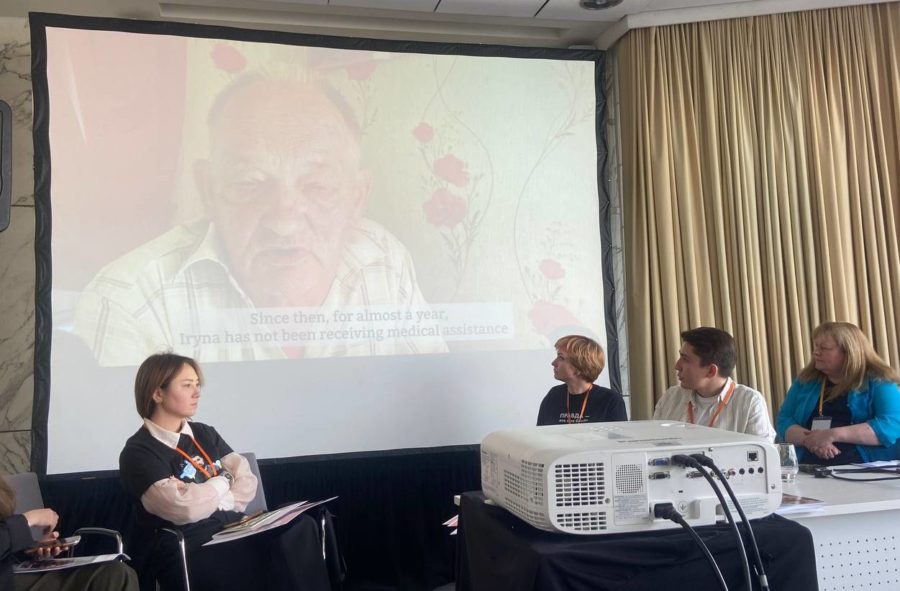 Photo: Bronislav Danylovych
Photo: Bronislav DanylovychThis opinion is shared by Aziz Umerov. His 25-year-old sister, a Crimean Tatar, Leniye Umerova, has been illegally held by the Russians in solitary confinement for more than 10 months. She was detained in December 2022 when she tried to get to Crimea to visit her father, who was suffering from cancer: “Leniye decided to go home to help take care of our father. At the checkpoint, Russian border guards began to carefully check her. Among the passengers, she was the only one with a Ukrainian passport. After checking her phone, FSB officers decided to continue the interrogation the next day, but the Russian police detained her on the way to a hotel and drew up an administrative report. On the same day, December 4, at 04:00, the court delivered an indictment. The story of Leniye’s illegal detention and fabricated criminal case began with this fabricated accusation.”
Umerov called for all available methods to influence the Russian Federation to force it to withdraw from the Ukrainian territories and release all captives and political prisoners. Sanctions, arms deliveries, agreements with third countries to facilitate exchange processes are all components of the main goal: the restoration of world order and international law. Aziz quoted one of Leniye’s letters: ‘All this is gross evidence of contempt for human rights, freedoms and dignity, which was formed as a result of someone’s aggressive ambitions and has become a terrible norm for the past almost ten years. And we, all together, very much need to cure the cause!’”
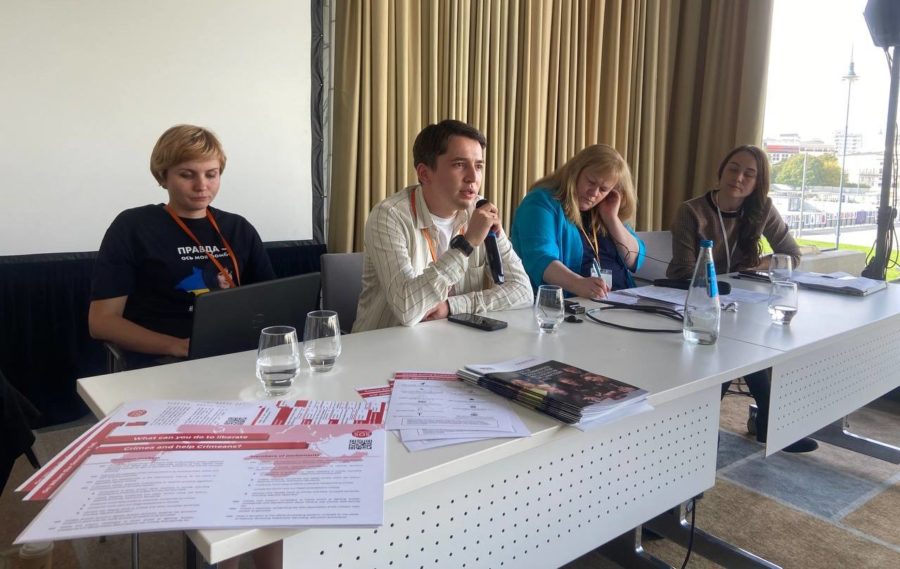 Photo: Aziz Umerov
Photo: Aziz UmerovFront Line Defenders representative Anastasia Moskvychova called on the international community to continue publicly urging Russia to stop persecution and human rights violations in the occupied territories of Ukraine.
“If possible, we recommend attending court trials and demanding visits to prisons where human rights defenders are held, or advocating for such visits by independent monitoring missions. We urge you to consider the possibility of launching the Moscow Mechanism procedure to investigate this situation, to determine the internationally recognized status of these people as a starting point in achieving justice for them,” Moskvychova urged.
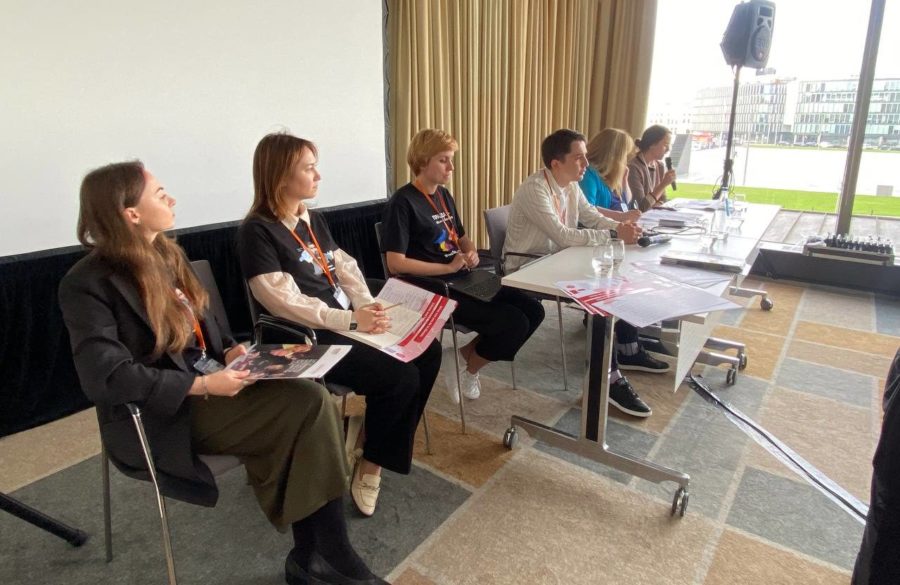
Background: OSCE Moscow Mechanism is one of the OSCE tools that participating States can invoke to monitor specific problems from a wide range of OSCE human dimension commitments.
The Warsaw Human Dimension Conference is a ten-day conference dedicated to discussing the situation with human rights and fundamental freedoms in the territory of the OSCE participating States, including Ukraine.
If you have found a spelling error, please, notify us by selecting that text and pressing Ctrl+Enter.

